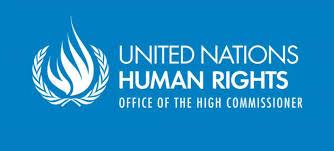
https://www.ohchr.org/EN/NewsEvents/Pages/DisplayNews.aspx?NewsID=26193&...
The three UN bodies that deal with disability rights teamed up to issue the first-ever guidelines to help countries implement existing obligations to ensure effective access to justice for people with disabilities.
“The guidelines respond to the challenges that people with disabilities face in accessing justice on an equal basis with others,” said Catalina Devandas, UN special rapporteur on the rights of persons with disabilities. “Many barriers prevent that access. Just to name a few, court houses or police stations are often not accessible, or court officials and police officers may not think that those with disabilities can take part in legal proceedings or have the capacity to instruct a lawyer. We want to help countries dismantle obstacles and parallel systems that prevent access to the existing guarantees and rights by all people.”
The International Principles and Guidelines on Access to Justice for Persons with Disabilities released today are the product of joint work by the special rapporteur on the rights of persons with disabilities, the Committee on the Rights of Persons with Disabilities and the Special Envoy of the Secretary-General on Disability and Accessibility.
“These guidelines are an important contribution to international human rights law, and are an indispensable contribution to achieving justice for all,” said Danlami Basharu, chairperson of the Committee on the Rights of Persons with Disabilities. “For the first time countries will have a practical handbook on how to design and implement justice systems that provide equal access to justice for people with disabilities, regardless of their role in the process, to bring them into line with the Convention on the Rights of Persons with Disabilities and other international standards.”
The new document outlines 10 principles of access to justice for people with disabilities – such as “people with disabilities have the right to participate in the administration of justice on an equal basis with others” – with detailed guidelines on how to implement each one.
“We believe we have supplied one pillar that many justice systems were lacking – disability inclusion,” said María Soledad Cisternas Reyes, special envoy of the Secretary-General on disability and accessibility. “This should be a valuable tool for everyone in the justice system. We want to ensure that people with disabilities are part of the system in the same way they are part of society, that they can fully exercise the human rights they have by virtue of being human.”
This guidance tool was developed in collaboration with disability rights experts, organizations of people with disabilities, States, academics, and other practitioners. The guidelines have been endorsed by the International Disability Alliance and the International Commission of Jurists.
“As countries set about implementing these guidelines, we sincerely hope they will include people with disabilities and their representative groups in the process of making changes in legislation, procedures and training of law-enforcement and justice officials,” the three experts said.
ENDS
THE EXPERTS:
Ms. Catalina Devandas Aguilar, UNSpecial Rapporteur on the rights of persons with disabilities, is part of what is known as the Special Procedures of the Human Rights Council. Special Procedures, the largest body of independent experts in the UN Human Rights system, is the general name of the Council’s independent fact-finding and monitoring mechanisms. Special Procedures mandate-holders are independent human rights experts appointed by the Human Rights Council to address either specific country situations or thematic issues in all parts of the world. They are not UN staff and are independent from any government or organization. They serve in their individual capacity and do not receive a salary for their work.
The Committee on the Rights of Persons with Disabilities monitors States parties’ adherence to the Convention on the Rights of Persons with Disabilities which to date has 182 States parties. The Committee is made up of 18 members who are independent human rights experts drawn from around the world, who serve in their personal capacity and not as representatives of States parties. The Committee’s concluding observations are an independent assessment of States’ compliance with their human rights obligations under the treaty.
Ms. María Soledad Cisternas Reyes is theSpecial Envoy of the Secretary-General on Disability and Accessibility. The role of the Special Envoy is to promote the rights of persons with disabilities and universal accessibility.
For more information and media requests, please contact Cristina Michels (+41 22 928 9866, cmichels@ohchr.org) and Veronica Forcignanò (+41 22 917 9975, vforcignano@ohchr.org), or write to sr.disability@ohchr.org.
For media enquiries regarding other UN independent experts, please contact Renato de Souza (+41 22 928 9855, rrosariodesouza@ohchr.org) and Kitty McKinsey (kmckinsey@ohchr.org)
Follow news related to the UN’s independent human rights experts on Twitter @UN_SPExperts.
Concerned about the world we live in?
Then STAND UP for someone’s rights today.
#Standup4humanrights
and visit the web page at http://www.standup4humanrights.org










Add new comment